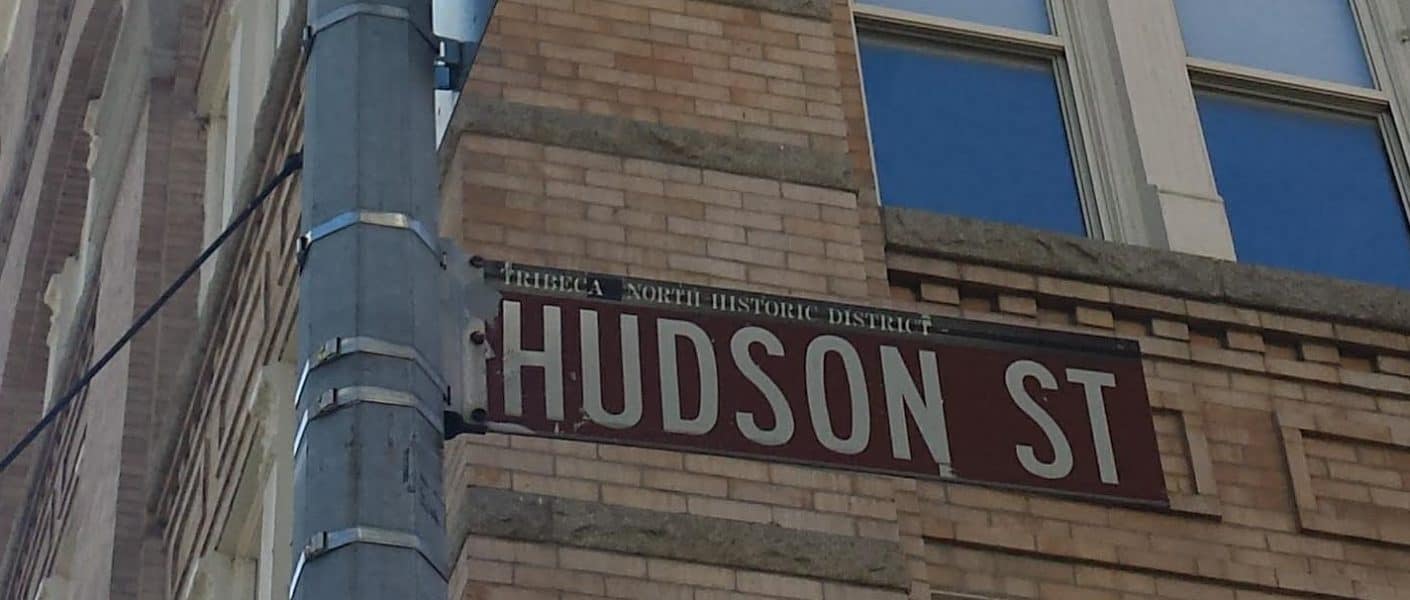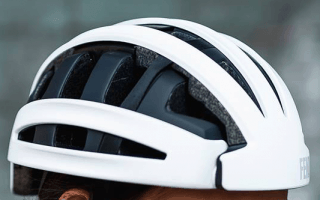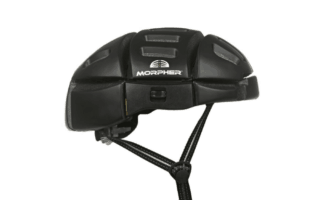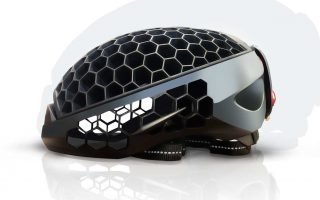As a huge fan of Priority Bicycle’s 174HUDSON Stack Packable helmet, I recently had the opportunity to sit down to an interview with Connor Swegle, co-founder of Priority Bicycles. Here is what he had to say about urban biking, the future of helmets and his favorite place to bike. Interview has been lightly edited for brevity and clarity.
As a New Yorker, I see so many people riding without helmets. Why do you think so many people avoid wearing them? Do you anticipate this changing now that folding helmets are officially a thing? And how do you think that folding helmets will impact the future of cycling in general?
I hate to say it, but I think the number one reason people don’t wear a helmet is that just they think they look goofy. So we always tell people “you don’t look as bad as you think you look- just wear it.” And, once you do, it’ll be second nature.
The other thing is that helmets are bulky. If you are a daily rider, it’s easy to have a helmet on all the time, you’ve worked it into part of your day. But for someone who’s more of a recreational rider- say you’re using rideshare, where you just ride on weekends- you haven’t really figured out the logistics to your helmet. So, I do think that having a packable helmet is great, you can easily just fold the helmet up and keep it in your desk. I think that that accessibility is going to be something that will be helpful for a lot of people.
“…we’re all about accessibility with cycling.”
I think if we can help get over what, I say, is the ego part of it, the look and the aesthetics, and understand that it’s just like wearing a seatbelt, where it’s something you just do, but then pair it with accessibility, then that’s where for us as a company the Stack helmet is really in line with what we try and offer our customer. Because we’re all about accessibility with cycling.
It looks like maybe out of the couple hundred people I’ve seen wearing a helmet while biking, maybe five or ten I saw wearing a folding helmet. Do you think that’ll change in the near future?
I think that with the folding helmets, you sort of get two things. One is, obviously, you get the convenience. But then you also get the fact that it’s something a little bit different. I think it makes a personal statement about yourself, where the helmet is less just this utilitarian safety object but becomes a little bit more of an accessory, it says something about you.
“I think it makes a personal statement about yourself, where the helmet is less just this utilitarian safety object but becomes a little bit more of an accessory, it says something about you.”
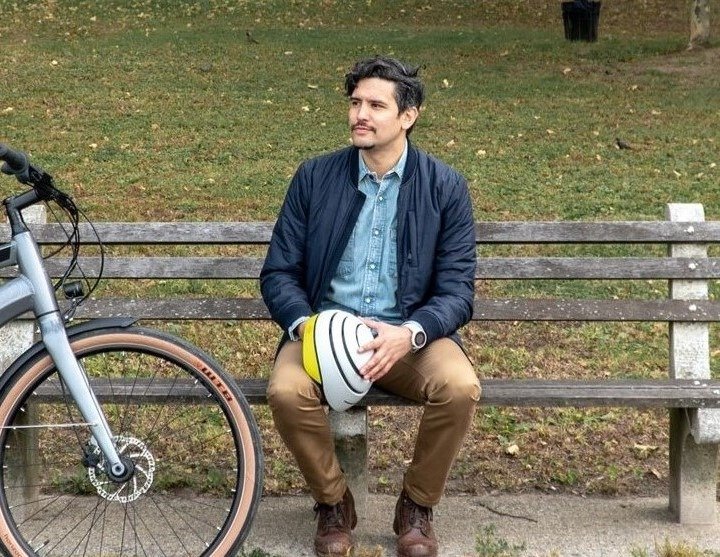
What makes a good helmet, and why is wearing the right helmet important?
Obviously it’s just the occurrence or the availability of danger when riding a bike, particularly in urban areas, is just really high. We aren’t in the situation, like in Europe, where you just have this tremendous density of cyclists. And I think when you get to this point where the majority of your population is cycling-friendly– maybe they’re not riding every day, but they have empathy for that cycling experience– then everything gets a lot safer.
Does it make sense to compare helmets mostly on safety, or other features?
With safety, the thing is, they just have to be safety certified. Bottom-line, hit the bar for safety. Our Stack is dual European and US certified. So it’s great to have that double certification. Because the availability for something to happen on a bike is just high, and it’s always there, and I think if you talk to anybody who’s been riding with just any frequency for any significant portion of their life, last couple of years, they’re going to mention some time when somebody opened up a door in front of them, or crossed in front of them on a bike path, or a tourist here wasn’t paying attention and they’re on their phone. So you’ve got to be protected, protect your head and it’s just like wearing a seatbelt.
I think fit is the other thing. Do you want to take the time to understand what the proper fit is, so that it’s snug on your head? And then you want to make sure that, within whatever the guidelines are for usage time, that you’re within that. And typically helmets are good for one impact. So just being smart about it. You see a lot of people riding around– they have a helmet popped on their head, but they don’t have the strap on and tightened. Which, that’s going to fall off immediately.
Is there any other safety advice you’d give to someone biking specifically in Manhattan?
Really be cognizant of the flow of traffic. When you get into groups where people are moving at different speeds, or your agendas are different, it can get really dangerous. You get a lot of safety in those numbers. If you’re not comfortable with where you’re going, if you need to stop and get directions, just take a look and you can move off to the side to calibrate where you’re going.
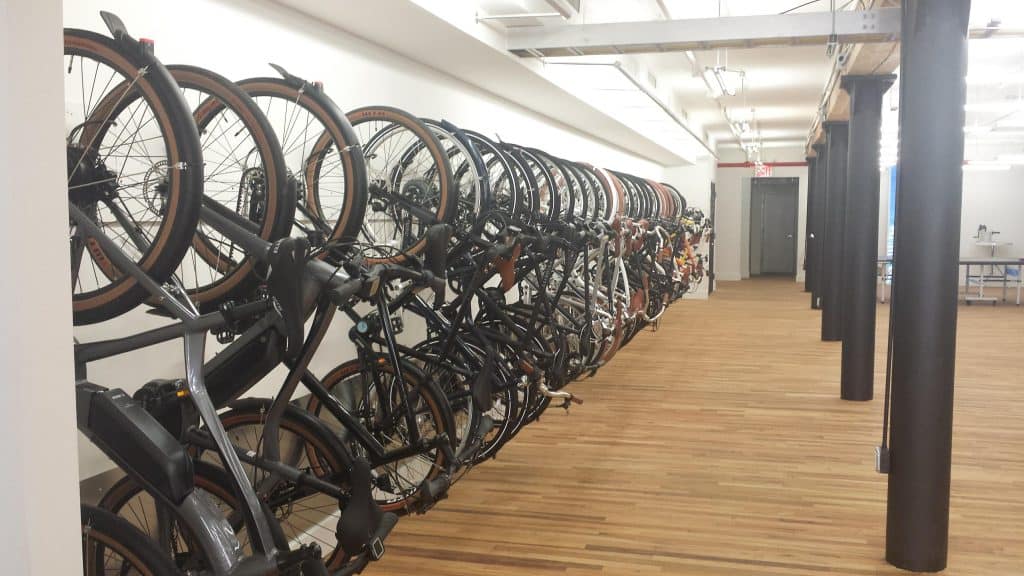
The other thing I just recommend to everybody is get familiar with using Google Maps on your phone with the cycling setting. That will tell you– Sometimes it won’t be intuitive, especially if you’re used to walking in a place- “oh, well this is my fastest way to get there”. Well sometimes it’s actually faster on a bike to go over a couple streets and cut up and cut back, because you’re going to have protected bike lanes.
Could you tell us a little bit more about the Stack, and your partnership with Closca. And what’s next?
We just have a personal helmet mandate, we just believe in them– so, we’ve been looking for this accessibility, portable helmet solution for a long time. And I think that’s just driven by being here in New York. So Closca, we ended up striking up a relationship with them because we have similar approaches to utilitarian design– and we certainly believe in how design can solve problems. Again, with accessibility for bikes. But they do it through accessibility for other consumer goods. So, philosophically, things lined up really well.
“…we certainly believe in how design can solve problems.”
Developing a bicycle, we’ve got our heads wrapped around that. We know how it works. Developing a helmet is a very specific thing. So you need to work with partners who understand the design, the safety, the testing aspect of it. And, luckily, Closca does- it’s a big part of what they do.
What inspired your design, and what makes your helmet different from the other folding helmets?
Really what inspired our design is just seeing the riders out of our window. We’re so lucky to be here in New York and see everything from a hardcore daily commuter and what they’re going through. We have a small team but we talk to, probably, a hundred and fifty customers a day, and are hearing what is specific to the challenges of their daily riding. But just being inspired by those riders every day.
I think the growth of rideshare is really great. People ask us all the time, oh well is rideshare or scootershare bad for your business? And we say no, if anything it gets more people moving, it creates a more cycling-friendly environment, so it’s great for us. So I think just being inspired by those riders and making sure that they have a solution that is scalable and fits their lifestyle.
And then in terms of what’s different for us is- we have a helmet that has a bunch of innovation in it, it’s really easy to use, it can fit in your life really well, it can be a life accessory, but it looks beautiful and is designed really well.
“we have a helmet that has a bunch of innovation in it, it’s really easy to use, it can fit in your life really well, it can be a life accessory, but it looks beautiful and is designed really well.”
What challenges did you face introducing this product to the market, and can you tell us a bit about your design process?
As far as challenges, I think that our only challenge is just getting people to understand how important a helmet is. And communicating that this is something different because it can fit into people’s lives. I think a lot of times, unfortunately, people, if they’ve been riding and they haven’t been using a helmet, they’ve started to get in their mind that they just don’t need one.
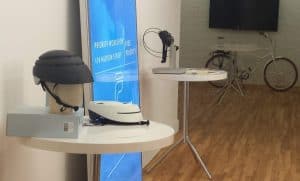
Being based in New York City, can you tell us a bit more about some of the unique challenges that New York bikers face?
I think, for New York riders, the density is the biggest thing. There’s a lot of cars, there’s a lot of people, there’s a lot of machinery in the middle of the day. Sidewalks are crowded with people walking around, certainly now that the weather is getting better, so what’s going to happen, people are just going to push into the bike lane, and you’re going to get people sort of drifting in the bike lane, checking their phones. And if you’re trying to get across town and you’re a daily commuter and you’re moving pretty fast, that, in an instant, can happen really quickly.
Last question, what is your favorite place to bike?
I just love the West Side Highway. All the way from the bottom of the island, straight up to getting up and over the G.W. Bridge, getting into New Jersey over there, Fort Lee, [Palisades Interstate] Park. You get to see so many things– from a downtown experience, and then midtown, you get into the Intrepid, clusters of tourists who are going and checking that out. And then it’s a little bit quiet for a while, but you start to get into these parks that are lining the side of the island. And then it gets to feel like you’re not even in a city for a little bit. And then you get to cross over the bridge, and you’re in a state park in a completely different state. And you can do it all on a bike, up and back, and it’s an enjoyable day.
